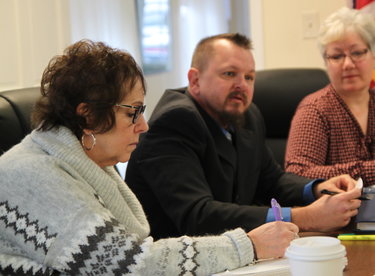Some municipalities slow to comply with new Open Meetings Law provision
ALBANY COUNTY — A month after a law requiring all public bodies that have a website to post meeting minutes within two weeks of a meeting’s occurrence went into effect, some municipalities have yet to comply.
In Berne, minutes for a town board meeting held on Nov. 10 had not been posted as of the morning of Dec. 7 (but were seen the morning of Dec. 8). In Knox, the most recent planning board minutes are from July. In Rensselaerville, the most recent planning board minutes are from November of last year.
Until last month, none of this would have been illegal. Minutes had been required to be available within two weeks of a meeting, but there was no requirement to post those minutes online.
Instead, people interested in reviewing minutes would often need to request them from a clerk directly. Otherwise, as still indicated on several municipal websites, minutes were typically posted once formally adopted at a subsequent meeting, usually a month later, sometimes longer.
Some towns, like Rensselaerville and New Scotland, have not posted written minutes as recently as the law now requires, but have posted meeting recordings, which count as minutes, and so those towns are in compliance. Guilderland also posts meeting recordings.
The Open Meetings Law, as suggested by its name, is in place to promote government transparency — something meeting minutes play a large role in, since they are the most direct way people who can’t attend meetings can stay on top of issues they’re interested in. Among the four Hilltowns, only Rensselaerville still streams meetings following the relaxation of COVID-19 protocols.
The update to the law came after legislators focused more on the way the Open Meetings Law functions in the digital age, when public entities, in theory, have fewer excuses for making public access difficult. Other laws passed by the state include one that allows public bodies to hold meetings in a fully remote format and another that requires documents that pertain to a meeting to be posted online 24 hours before that meeting is held.
However, failure to comply with the new minutes provision is not, in all likelihood, evidence of willful neglect or malice on the parts of these and other various boards, which are occasionally accused of nigh-conspiratorial actions by frustrated residents.
According to Kristin O’Neill, assistant director for the New York State Committee on Open Government, the state did very little to inform public officials of the change in the law, instead trusting public officials to stay on top of amendments on their own.
“As a courtesy, we posted an item on the home page of our website notifying public bodies of the changes to the Open Meetings Law,” O’Neill said. “But it is the responsibility of every municipality and unit of local government (there are thousands of them across the state) to stay aware of changes to State law that may affect them.”
Municipal clerks have, in the past, struggled to stay abreast of the myriad laws that govern their procedures, even those that were not necessarily new. Such was the case of Knox’s town clerk last year, who was found, through a New York State Comptroller’s audit, to not be depositing cash in a timely manner. Once the deficiency was spotted, the town adjusted its procedures, citing ignorance of the law.
As for the new minutes law, Rensselaerville Clerk Victoria Kraker said she became aware of the change through Enterprise coverage.
Enforcement of Open Meetings Law and its relative, the Freedom of Information Law, is conducted through Article 78 legal proceedings, O’Neill said, which are traditionally filed by citizens to challenge administrative decisions.



